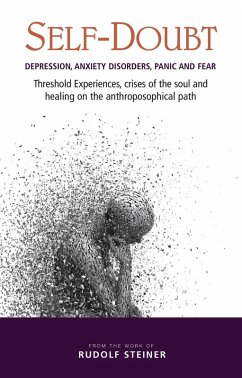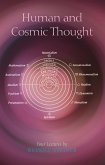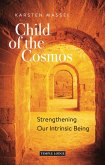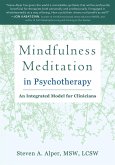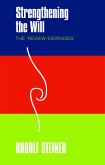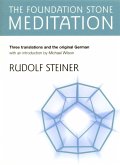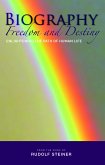As these constitutional changes persist, says Rudolf Steiner, a condition of 'dissociation' becomes increasingly common. A healthy emotional life will only be possible if individuals engage in a conscious practice of personal growth, strengthening their constitution through the action of the 'I' or self. The expertly selected and collated texts in Self-Doubt offer numerous cognitive and practical ideas for the improvement of everyday mental and emotional health.
Chapters include: The origin of error, fear, and nervousness; Crossing the threshold in the development of humanity and the individual; The polarity of shame and fear; The polarity of doubt and terrifying disorientation; The polarity of scepticism and claustrophobia, astraphobia, and agoraphobia; The origin of panic; Anxiety; The multi-layered nature of terrifying disorientation; Healing aspects of the anthroposophical path of training; The spiritual-scientific qualities of fear compared with standardized diagnostic terms and as a basis for therapy.
Dieser Download kann aus rechtlichen Gründen nur mit Rechnungsadresse in A, B, BG, CY, CZ, D, DK, EW, E, FIN, F, GR, H, IRL, I, LT, L, LR, M, NL, PL, P, R, S, SLO, SK ausgeliefert werden.

